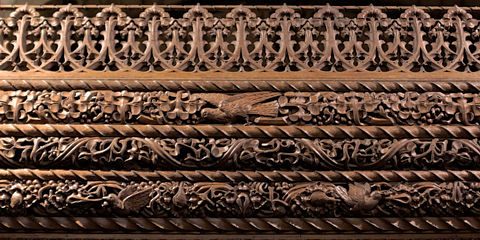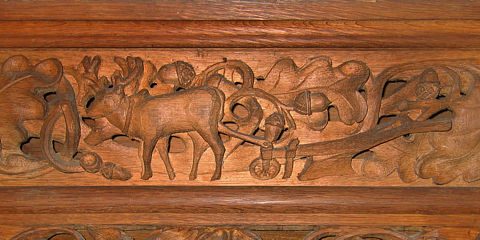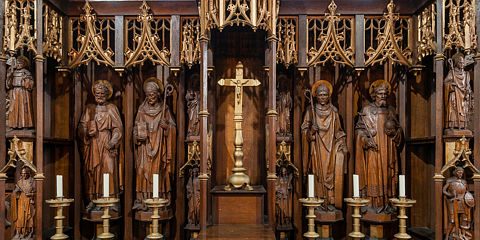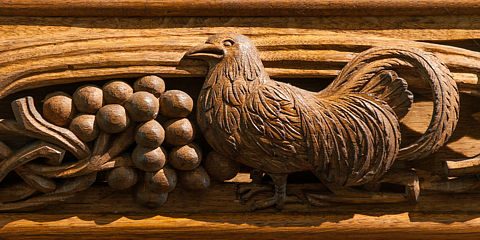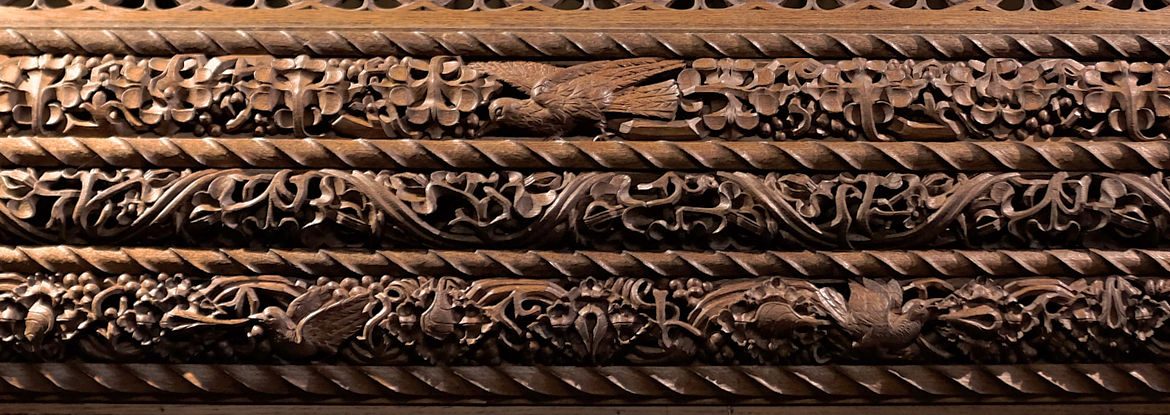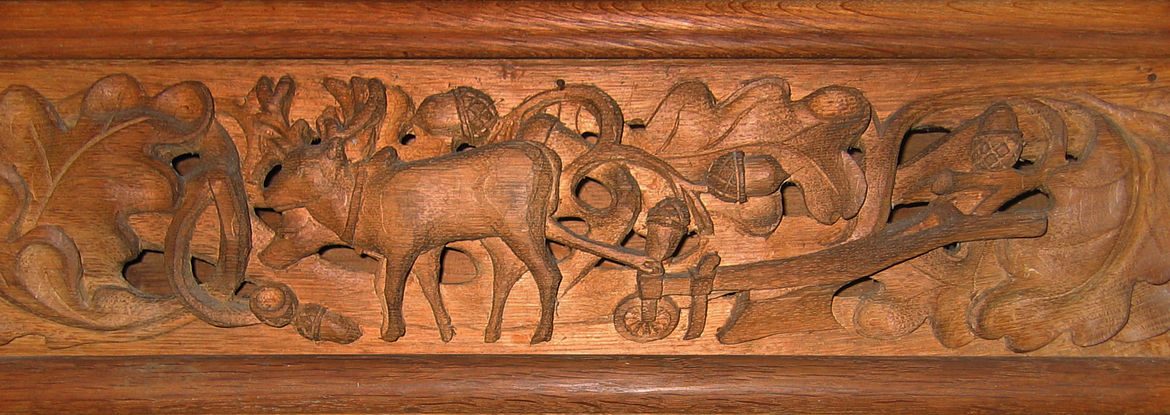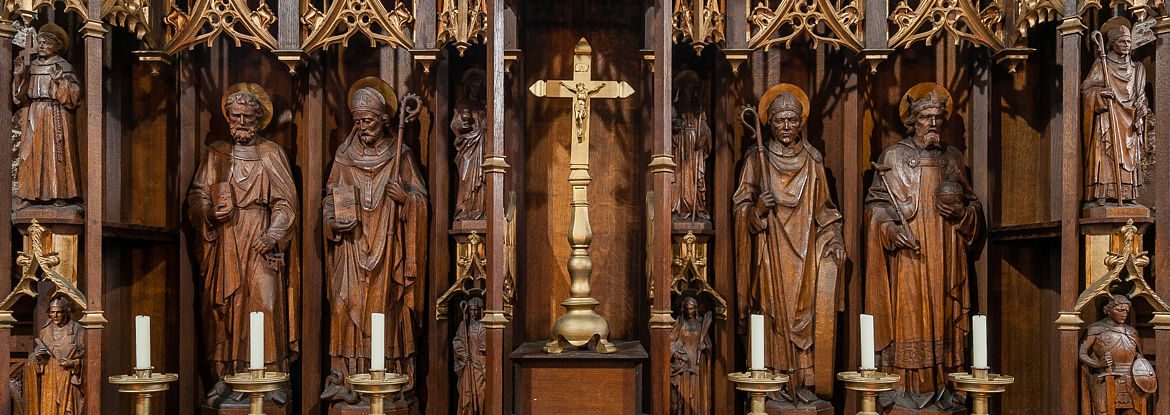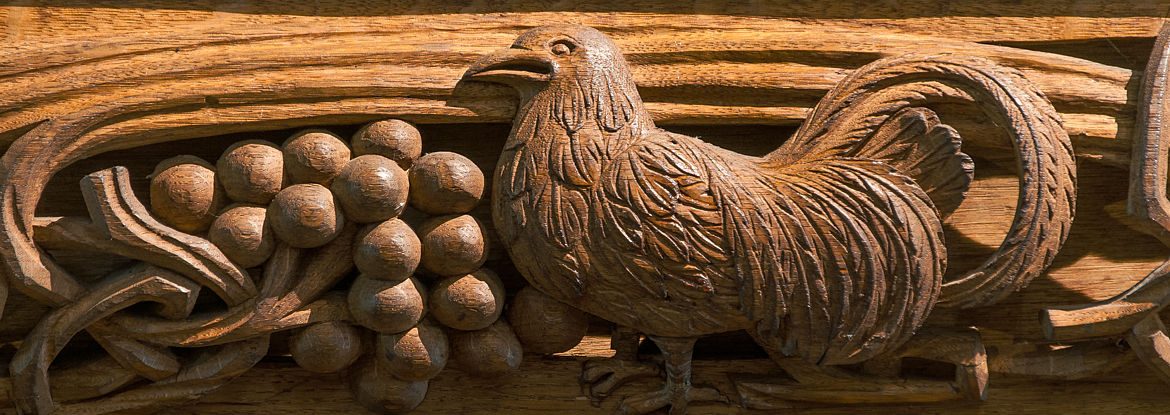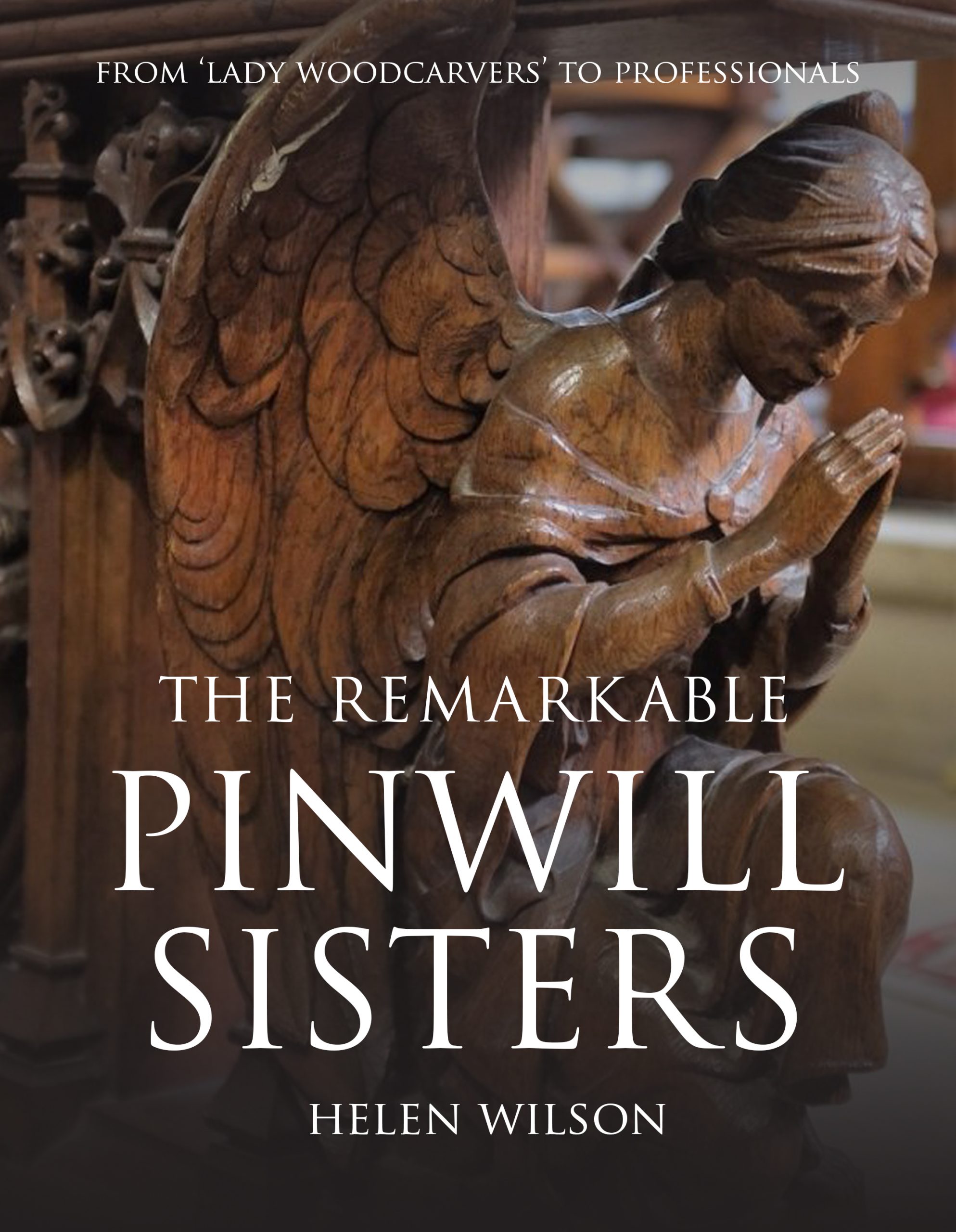
BOOK AVAILABLE
The lives and work of the Pinwill sisters is the subject of my book, in which the full story is told. The front cover, showing a beautifully-carved praying angel from Plympton St Mary, Devon, is featured on the right. Please see the Publications page for further details.
The Pinwill sisters, Mary, Ethel and Violet, worked as professional woodcarvers in Ermington and then Plymouth from about 1890. They were three of seven daughters of the Revd Edmund Pinwill and his wife Elizabeth, who encouraged their daughters to learn woodcarving from a team of craftsmen who came to Ermington to restore the church there in 1884. One of their first large commissions was the pulpit at Ermington, completed in 1889. The sisters then set up their own company, Rashleigh, Pinwill & Co., Ecclesiastical Carvers. While it was not unusual for women to learn to carve in the late Victorian period, it was quite extraordinary for them to set up in business as woodcarvers and the name of the company may well have been devised to deflect any prejudice against women assuming that role.
The establishment and success of the firm was due in no small part to the patronage of the architect Edmund H. Sedding. He was the nephew of the Arts & Crafts architect John Dando Sedding and had come to know the family well during the restoration of Ermington church. Commissions designed by Sedding ensured a high standard was established and a good reputation gained. Other architects soon recognised their skills and commissioned work from the sisters, including Frederick Bligh Bond and George H. Fellowes Prynne.
When Mary married in 1900, she left the business, which by that time had moved to Plymouth to premises shared with Edmund H. Sedding. After Ethel moved to Surrey sometime after 1907 to work as a woodcarver, Violet became the sole proprietor. She continued to work with Sedding, but after his death in 1921 Reginald F. Wheatly became the company architect, although Violet had by then established a reputation and increasingly won commissions in her own right, producing many superb designs.
Violet employed other woodcarvers as well as joiners and established a large workshop in St Lawrence Yard, Plymouth. By the time she died on 1st January 1957, over 180 churches in Devon and Cornwall and 20 in other counties contained at least one item made by the firm.
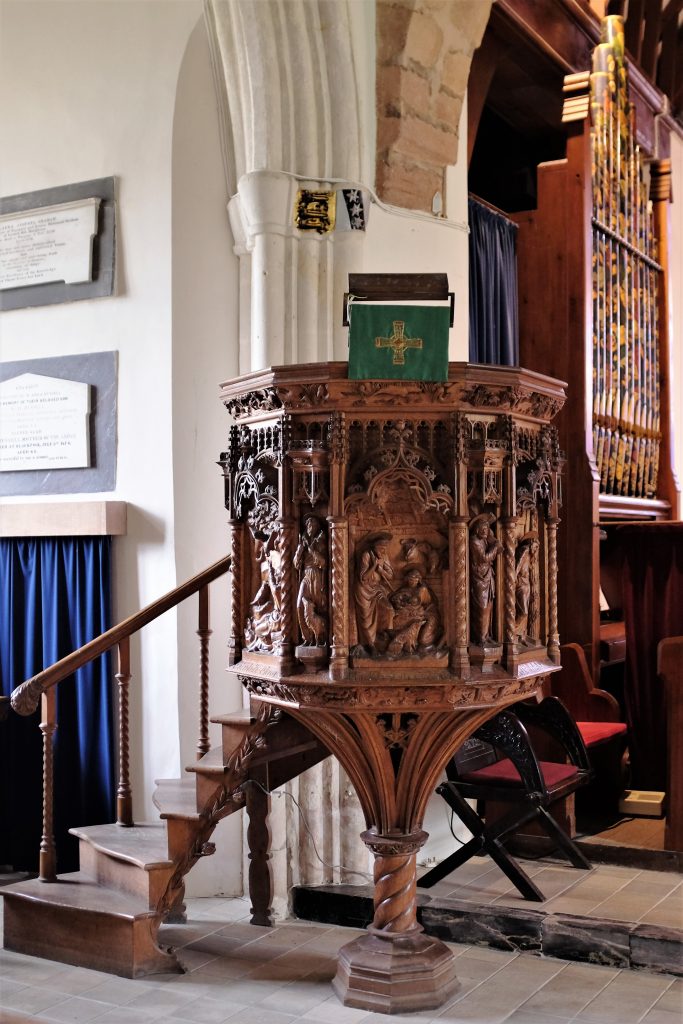
PODCAST
Devon and Cornwall Record Society: Todd Gray talks to Helen Wilson, award-winning author of ‘The Remarkable Pinwill Sisters’
BLOG
Society for the Protection of Ancient Buildings (SPAB): The Remarkable Pinwill Sisters and Crantock Church, Cornwall
PRESENTATIONS 2025
If you are interested in attending any of these talks, you can get in touch via the Contact page, as most are open to the public.
Plymouth Proprietary Library: Wednesday 23 July at St Barnabas Terrace, Plymouth, Devon, at 2:00 pm. £4 members, £8 non-members.
Friends of RAM Museum, Exeter: Tuesday 16 September in Meeting Room A, at 2.30 pm. £8 Friends, £10 Standard. Book online.
Some presentations since publication of the book in March 2021:
- Cornish Buildings Group
- City & Guilds of London Art College
- The Victorian Society
- Devonshire Association Buildings Section
- Friends of Exeter Cathedral
- BBC Radio Devon
- Ecclesiological Society
- Devon Buildings Group
- Kresen Kernow (‘Cornwall Centre’)
- Devon Rural Archive
- Public Statues & Sculpture Association
- Devon History Society
- Simonsbath Festival
- Cornwall Woodcarvers
